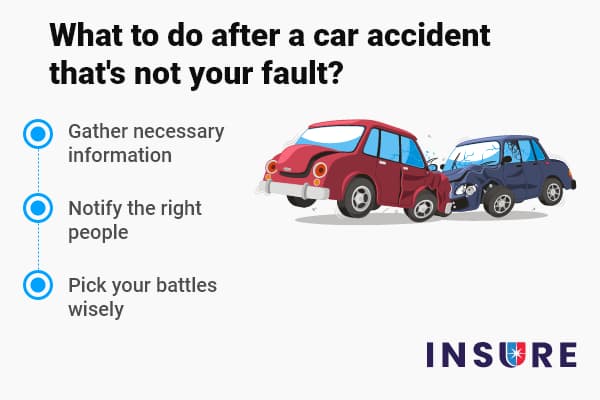Brenton Armour, the visionary founder and lead attorney at InjuryLawsuitHelper, boasts an impressive 15-year track record in personal injury law. His remarkable expertise spans cases...Read more
Have you ever wondered if you can claim compensation for an injury that occurred because of your own fault? It’s a common question that many people have when they find themselves in this situation. The answer is not always straightforward, but with the right information, you can make an informed decision about whether or not to pursue a claim.
In this article, we’ll explore the circumstances in which you may be able to claim for an injury that was your fault. We’ll also look at the factors that can affect your claim and the steps you can take to increase your chances of success. So, if you’re curious about your legal options after an injury, keep reading to learn more.
It is possible to claim for injury even if it was your fault, but the amount of compensation you receive may be reduced. This is because the court will consider your level of responsibility for the accident. For example, if you were 50% responsible, your compensation will be reduced by 50%. However, if you were more than 50% responsible, you may not be able to claim compensation at all.

Contents
- Can I Claim for Injury if It Was My Fault?
- Frequently Asked Questions
- Can I Claim for Injury if It Was My Fault?
- What if I Signed a Waiver?
- Can I Claim for Injury at Work if it Was My Fault?
- Will My Claim be Affected if I Admit Fault?
- What Should I Do if I am Injured and it Was My Fault?
- Can I File A Claim If Accident Was Partly My Fault?
- Can You Get A Misdiagnosis Cataracts?
- South Carolina Dog Bite Laws?
- Iowa Dog Bite Laws?
Can I Claim for Injury if It Was My Fault?
If you have been injured and it was your own fault, you may be wondering whether you can still make a claim for compensation. While it may seem unfair to hold someone else responsible for an accident that was entirely your fault, there are still circumstances where you may be able to claim. Here are some key factors to consider.
Contributory negligence
Contributory negligence is a legal concept that refers to situations where both parties involved in an accident are partially at fault. For example, if you were involved in a car accident and you were speeding, but the other driver failed to signal, both parties could be considered to have contributed to the accident. In such cases, the amount of compensation you can claim may be reduced according to the degree to which you were at fault.
If you were more than 50% responsible for the accident, you may not be able to claim any compensation at all. However, if you were less than 50% responsible, you may still be entitled to some compensation, although the amount you receive may be reduced.
Negligence on the part of the other party
If the other party involved in the accident was also negligent, you may still be able to claim compensation. For example, if you slipped and fell on a wet floor in a store, but the store had failed to put up a warning sign, you could argue that the store was partially at fault for your injuries. In such cases, the amount of compensation you can claim may be reduced according to the degree to which you were at fault.
Strict liability
There are some situations where a person or organization can be held liable for an injury regardless of whether they were at fault. These are known as strict liability cases. Examples of strict liability cases include injuries caused by defective products or injuries sustained on someone else’s property due to unsafe conditions.
In strict liability cases, you may be able to claim compensation even if the accident was entirely your fault. However, the amount of compensation you can claim may be reduced according to the degree to which you were at fault.
Benefits of making a claim
Even if you were partially at fault for an accident, there are still benefits to making a claim for compensation. Firstly, it can help to cover the costs of any medical treatment you may need as a result of your injuries. Secondly, it can provide you with financial support while you are unable to work. Finally, it can help to hold the other party responsible for their actions and prevent similar accidents from occurring in future.
Our advice
If you have been injured and you think you may be entitled to claim compensation, it is important to seek legal advice as soon as possible. A qualified personal injury lawyer will be able to assess your case and advise you on whether you have a valid claim. They can also help you to gather evidence and negotiate with the other party’s insurance company to ensure you receive the compensation you are entitled to.
Remember, even if you were partially at fault for the accident, you may still be able to claim compensation. Don’t let your own sense of guilt or responsibility prevent you from seeking the compensation you deserve.
Frequently Asked Questions
Can I Claim for Injury if It Was My Fault?
It is possible to claim for injury even if the accident was your fault, but it depends on the circumstances of the case. If you were partially responsible for the accident, you may be able to make a claim for compensation, but the amount you receive may be reduced to reflect your contribution to the accident.
For example, if you were involved in a car accident and were found to be 50% responsible for the collision, you may still be able to make a claim for compensation, but the amount you receive will be reduced by 50% to reflect your contribution to the accident. This is known as contributory negligence and is taken into account when determining the amount of compensation you are entitled to receive.
What if I Signed a Waiver?
If you signed a waiver before participating in an activity or event, it may limit your ability to make a claim for compensation if you are injured. However, waivers are not always enforceable, and it depends on the specific wording of the waiver and the circumstances of the case.
If the waiver is found to be enforceable, it may limit your ability to make a claim for compensation even if the accident was not entirely your fault. It is important to read and understand any waiver you sign before participating in an activity or event to understand what rights you may be giving up.
Can I Claim for Injury at Work if it Was My Fault?
If you are injured at work and the accident was your fault, you may still be able to make a claim for compensation. However, your ability to make a claim may be impacted by your employer’s liability insurance policy and the specific circumstances of the accident.
If your employer has liability insurance, it may cover your injuries even if the accident was your fault. However, if your actions were reckless or intentional, you may not be covered by the policy. It is important to speak with an experienced personal injury lawyer to understand your legal rights and options if you are injured at work.
Will My Claim be Affected if I Admit Fault?
If you admit fault for an accident, it may impact your ability to make a claim for compensation. However, it depends on the specific circumstances of the case and the laws in your jurisdiction.
In some cases, admitting fault may prevent you from making a claim for compensation entirely. In other cases, it may impact the amount of compensation you are entitled to receive. It is important to speak with an experienced personal injury lawyer before admitting fault to understand the potential impact on your legal rights and options.
What Should I Do if I am Injured and it Was My Fault?
If you are injured in an accident and it was your fault, it is important to seek medical attention right away. Your health and well-being should always be your top priority.
After seeking medical attention, it is important to speak with an experienced personal injury lawyer to understand your legal rights and options. An experienced lawyer can help you navigate the legal process and determine if you may be entitled to compensation for your injuries.

Can I File A Claim If Accident Was Partly My Fault?
In conclusion, the answer to the question of whether you can claim for injury if it was your fault is not a simple one. It depends on several factors, including the laws in your state or country, the circumstances surrounding the incident, and the extent of your injuries.
However, it is important to remember that just because you may have been partially at fault for the injury does not mean that you are not entitled to compensation. In some cases, you may still be able to make a claim or receive benefits under your insurance policy.
Ultimately, the best course of action is to speak with an experienced personal injury lawyer who can evaluate your specific case and advise you on the options available to you. With their guidance, you can make an informed decision about pursuing compensation for your injuries and the associated costs.
Brenton Armour, the visionary founder and lead attorney at InjuryLawsuitHelper, boasts an impressive 15-year track record in personal injury law. His remarkable expertise spans cases from minor injuries to devastating accidents, earning him a sterling reputation as a trusted and passionate advocate for justice. Brenton's unwavering dedication to his clients has cemented his position as a sought-after personal injury attorney.
- Latest Posts by Brenton Armour
-
Can You Get A Misdiagnosis Cataracts?
- -
South Carolina Dog Bite Laws?
- -
Iowa Dog Bite Laws?
- All Posts